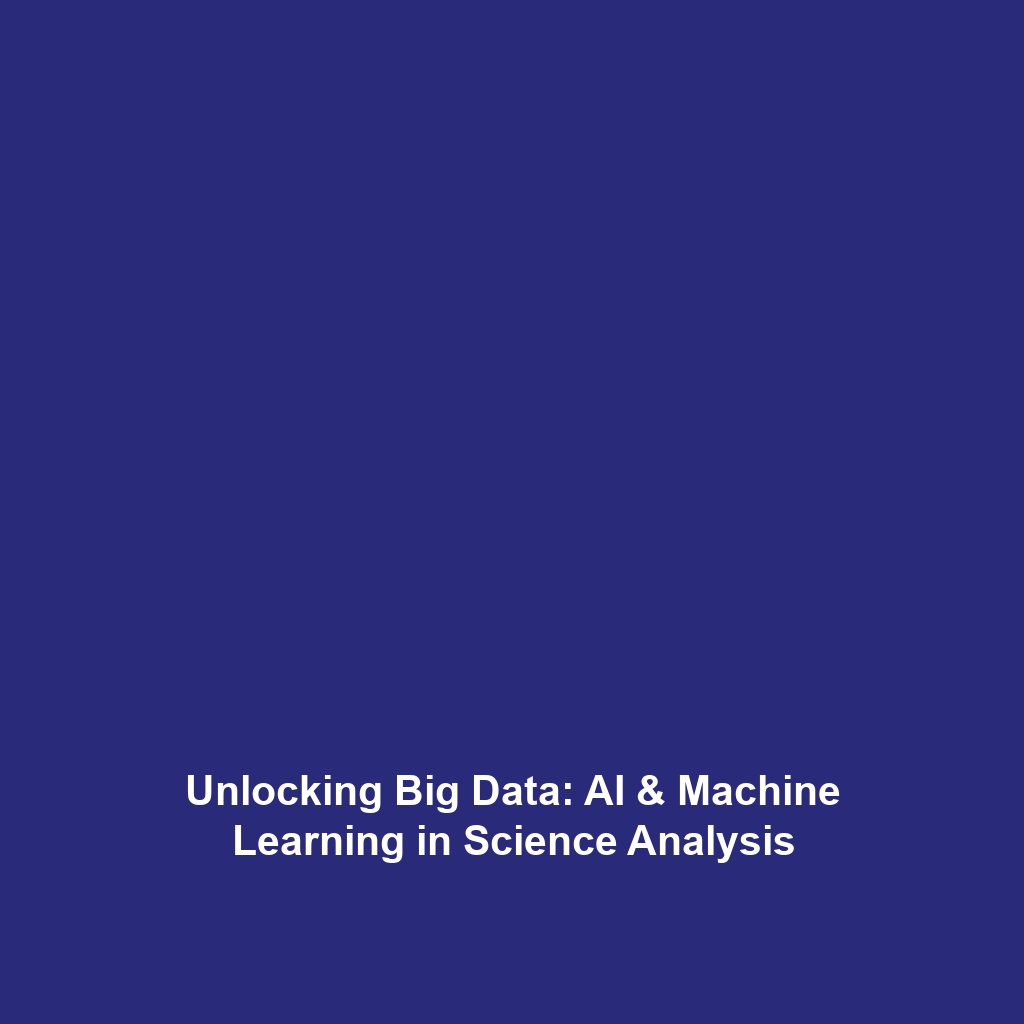Advanced Analytical Methods in Big Data Science
Introduction
In the age of Big Data, the analysis of vast datasets through advanced analytical methods has become indispensable. These methods, which necessitate the integration of machine learning, artificial intelligence, and high-performance computing, enable researchers to extract meaningful insights from complex datasets. The significance of these analytical approaches lies not only in their technical prowess but also in their capacity to drive innovations across various scientific disciplines, enhancing our understanding of intricate phenomena and fostering advancements in healthcare, climate science, and beyond.
Key Concepts
Advanced analytical methods encompass various principles and techniques that augment traditional computational approaches. Understanding these key concepts is essential to grasp their role in the Big Data landscape:
- Machine Learning (ML): ML algorithms are designed to improve their predictive accuracy through experience, allowing scientists to analyze patterns and make data-driven decisions.
- Artificial Intelligence (AI): AI extends beyond simple computations, enabling systems to learn, reason, and perform tasks akin to human cognition, revolutionizing data interpretation.
- High-Performance Computing (HPC): HPC facilitates intensive computational tasks at unprecedented speeds, enabling large-scale simulations and analyses that were previously infeasible.
Applications and Real-World Uses
The applications of advanced analytical methods are vast and transformative. Here are significant examples of how these methods are utilized within the domain of Big Data in Science:
- Genomic Research: Leveraging machine learning algorithms to analyze genomic data, researchers can identify disease-linked genes and tailor personalized medicine approaches.
- Climate Modeling: AI-driven models process massive climate datasets to predict weather patterns, aiding in environmental conservation efforts.
- Healthcare Analytics: Predictive analytics in healthcare allows for improved patient outcomes through efficient resource allocation and disease prevention strategies.
Current Challenges
Despite the remarkable potential of advanced analytical methods, several challenges persist in their application within Big Data in Science:
- Data Privacy Concerns: The handling of sensitive information poses ethical dilemmas and regulatory challenges.
- Interoperability Issues: Diverse data formats and systems can hinder seamless integration and analysis.
- Algorithm Bias: Ensuring that algorithms do not propagate bias remains a critical challenge in achieving reliable outcomes.
Future Research and Innovations
The future of advanced analytical methods is paved with potential innovations that will reshape Big Data in Science:
- Quantum Computing: Promises to exponentially increase processing power, enhancing data analysis capabilities beyond current technological limits.
- Real-Time Data Processing: Innovations in streaming analytics will enable immediate insights generation, revolutionizing decision-making processes.
- Enhanced AI Algorithms: Next-gen AI technologies are anticipated to perform even more complex analyses with increased accuracy.
Conclusion
In conclusion, advanced analytical methods are crucial for unlocking the full potential of Big Data in Science. By harnessing the capabilities of machine learning, artificial intelligence, and high-performance computing, researchers can address complex scientific challenges and drive innovation across multiple fields. It is imperative to continue exploring these methods and their applications while addressing the ethical considerations involved. For more insights into Big Data applications, check out our articles on Big Data in Healthcare and Climate Change Analytics.

Leave a Reply